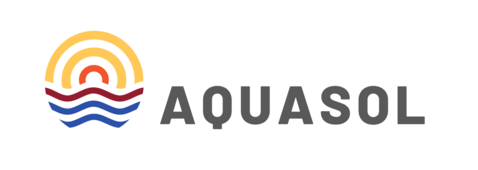AQUASOL
Improved groundwater formation and water quality through solar parks

The construction of renewable energy projects, such as solar parks, is one of the main drivers of landscape transformation. Solar parks require large land extensions to arrange the photovoltaic modules due to their energy flux rate per unit of area. The proper management and adequate infrastructure conditions may increase groundwater recharge, improve groundwater quality, and enhance ecosystem services. However, to optimize the design and operational parameters of the solar park systems, it is essential to identify and quantify the interactions, synergies, and impacts of the different variables involved across the land, water, food, and energy systems. This analysis unavoidably requires empirical confirmation on a per-site basis.
In this project, we will develop a conceptual framework and a software application to identify and quantify the hydrological implications and the water-related ecosystem services associated with the construction of solar parks. The project's main objective is to create a software tool to support the design and management of solar parks to improve groundwater recharge, water quality, and ecohydrological conditions. The project includes the construction of the conceptual framework to assess and quantify specific ecosystem services from solar park projects by linking the effect of the infrastructure with ecological and hydrological data and water resources conditions. The goals of this project will be achieved by working collaboratively with the company MaxSolar GmbH during the planning and construction of one of their solar park projects in Bundorf (Bavaria).
Project duration: February 2022 - August 2024
Project funding: The German Federal Environmental Foundation (Deutsche Bundesstiftung Umwelt DBU, DBU)
Project management: Prof. Dr. Markus Disse, Prof. Dr. Gabriele Chiogna
Further information: https://www.dbu.de/projekt_37808/01_db_2848.html